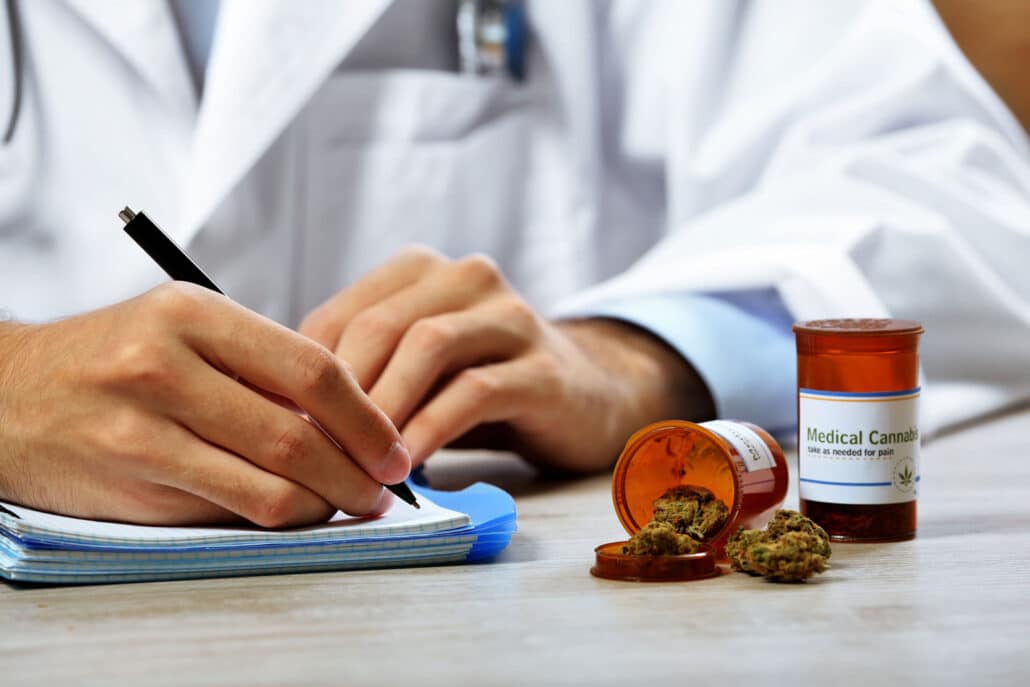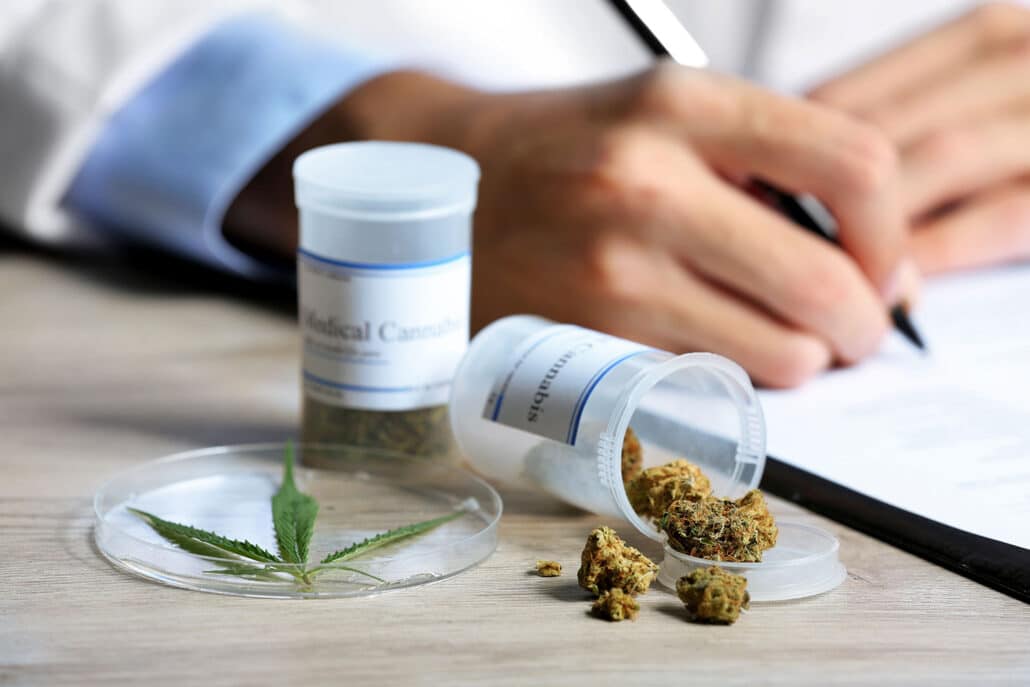Marijuana, also known as cannabis, is one of the most widely used psychoactive drugs in America.
While its use is legal for recreational or medical purposes in many states, including New York, regular use can lead to dependence and addiction, which impacts various aspects of a person’s life.
If you or your loved one is struggling with marijuana addiction, this article is here to help by providing information and resources to guide you through the journey toward recovery.
We will discuss the addictive potential of marijuana, available treatment approaches, and the importance of seeking professional help while treating this tricky form of substance abuse.

Table of Contents
- 1 Is Marijuana Addictive?
- 2 How Dangerous is Marijuana Addiction?
- 3 How Common Is Marijuana Addiction in New York?
- 4 How to Identify Marijuana Addiction
- 5 What Triggers Marijuana Addiction?
- 6 Exploring Marijuana Addiction Treatment Options
- 7 Importance of Seeking Professional Help While Treating Marijuana Addiction
- 8 Final Thoughts: Finding Marijuana Addiction Treatment in New York
Is Marijuana Addictive?
While marijuana is often seen as a less harmful drug when compared to other psychoactive drugs, it can also cause dependence and addiction with continuous use.
In fact, the Centers for Disease Control and Prevention (CDC) released a report estimating that around 10% to 30% of adults who use marijuana may develop marijuana abuse disorder, which is the scientific name for marijuana addiction. This risk is even higher among those who start using marijuana at a younger age.
How Does Marijuana Addiction Work?
The main psychoactive ingredient in marijuana is delta-9-tetrahydrocannabinol (THC). This substance interacts with the brain’s reward system, leading to the release of dopamine, which is a neurotransmitter associated with the sensation of pleasure.
This can lead to feelings of euphoria and encourage people to continue using marijuana to experience those effects again.
However, continuous or chronic recreational use of marijuana leads to dependence, where the brain adapts to its presence by reducing its own production of endocannabinoids (naturally occurring chemicals similar to THC), leading to marijuana withdrawal symptoms upon ceasing to use the drug.
How Dangerous is Marijuana Addiction?
Although many people downplay the seriousness of marijuana addiction, it can actually become a serious problem for many people.
In fact, several aspects can massively increase the risks associated with marijuana dependence and addiction, such as frequent use and predisposition to mental health disorders.
Here are some of the potential side effects of marijuana:
- Increased Mental Health Disorders Risk: Drug use can exacerbate the symptoms of existing psychological conditions like anxiety and depression. It can also increase the risk of developing serious mental disorders, such as psychosis and schizophrenia
- Respiratory Problems: Smoking marijuana irritates the lungs and can lead to various respiratory health issues and infections.
- Impaired Cognitive Functions: studies show that continuous marijuana use may cause poor memory and learning difficulties.
- Social, Academic, Professional, and Financial Issues: Like other forms of addiction, marijuana addiction leads to a sense of isolation and neglecting responsibilities, which typically leads to strained relationships, job loss, and financial ruin.
The severity of such consequences can vary from one individual to another. Yet, it’s also important to note that the risks aren’t limited to the previously mentioned points.
How Long Does Marijuana Remain in Your System?
Marijuana can be detected in a variety of ways, including blood and urine screening tests. In fact, some tests are able to detect marijuana traces in hair up to 90 days after consumption.
The detectability of marijuana depends on the sample used. For example, the standard urine test can detect marijuana up to 30 days after consumption, but it can be longer for heavier users. On the other hand, marijuana remains in saliva for only 48 hours.
Other factors can also affect the rate at which marijuana is removed from your system, including frequency of use, metabolic rate, body fat percentage, and level of hydration.
It’s important to note that the first step of treating substance use disorder is removing the drugs and all their traces and metabolites from the body through the detox process, but more about this in the following sections.
How Common Is Marijuana Addiction in New York?
Marijuana addiction is remarkably common in New York, especially after the legalization of cannabis use. In 2002, the Department of Justice ranked marijuana as one of the most common drugs, along with cocaine and heroin.
According to a report by NYC Health, around 34% of New York City adolescents reported using the drug over a year’s time.
A 2019 report also shows that around 10% of marijuana users will develop dependence and cannabis use disorder, with those who start at an early age being more susceptible to drug addiction at around 17%.

How to Identify Marijuana Addiction
Identifying drug abuse can be tricky, as the signs can sometimes be subtle and easily dismissed or confused with other health conditions.
However, there are some key signs and behavioral patterns associated with marijuana addiction that you can check for. These include:
Physical Signs
- Noticeable eye redness all the time (bloodshot eyes)
- Always feeling lethargic and exhausted
- Noticeable loss of balance and coordination
- Insomnia and disrupted sleep patterns
- Memory impairment
- Losing track of time
- Having a strong urge to use marijuana when not using it and experiencing withdrawal symptoms when you try to quit
Behavioral Signs
- Emotional instability and mood swings
- Anxiety and depression
- Continuous guilt feeling
- Lack of self-esteem
- Withdrawal from life activities like work, school, and hobbies to use marijuana
- Neglecting personal hygiene
What Triggers Marijuana Addiction?
Marijuana addiction is rarely the result of a single factor. Instead, it’s typically a combination of different aspects that increase the likelihood of developing marijuana use disorder.
For instance, the easy access to marijuana among adults in New York increases the risk of developing marijuana dependence and addiction.
The previously mentioned studies also show that exposure to marijuana at a younger age is a significant factor behind its addiction.
Additionally, attempting to self-medicate using marijuana is one of the common reasons behind its addiction. This is common among people with pre-existing conditions like depression, anxiety, or PTSD.
Exploring Marijuana Addiction Treatment Options
Treating marijuana addiction involves a variety of methods, which are usually used in combination with each other to increase treatment effectiveness.
Rehab and Detoxification
Detoxification is the process where the body rids itself of marijuana and its metabolites, which is the initial stage of the treatment program. Medical detoxification can take a variety of forms, depending on the severity of the addiction.
The commonly used method here is outpatient treatment or non-residential rehabilitation. This is where individuals undergo treatment by visiting the treatment center several times per week while living at home and attending to other responsibilities.
However, in cases where marijuana addiction is too severe, medical professionals might recommend residential or inpatient treatment where patients remain under medical supervision 24/7 to address any serious withdrawal symptoms.
Counseling and Behavioral Therapy
Behavioral therapy sessions usually follows detoxification treatment, which helps patients achieve a long-term recovery by working on the root causes of addiction and developing the necessary coping skills to avoid relapse.
This depends on various evidence-based therapy techniques, such as cognitive behavioral therapy (CBT). This individual therapy method helps patients identify and change unhealthy thought patterns and behaviors that contribute to addiction.
Contingency management therapy is also a popular therapeutic technique to achieve long-term recovery by rewarding and reinforcing positive behaviors like abstinence.
Doctors might also recommend additional methods, such as motivational enhancement therapy and dialectical behavioral therapy, which help individuals overcome triggers and stay motivated about recovery.
Support Groups
Peer support groups family therapy are also essential to overcome the sense of isolation that individuals might experience while recovering from addiction.
Joining group therapy specific to marijuana addiction can connect individuals with others facing similar challenges and encourage participants to maintain sobriety. 12-step meetings are also a suitable option for many.
Holistic Approaches
Holistic therapies can be used alongside traditional treatment approaches to address the well-being of individuals.
These complementary approaches can aid in reducing cravings and stress associated with relapse.
The most popular holistic approach for treating marijuana addiction is using mindfulness and meditation as a substitute for marijuana to achieve relaxation.
However, it can also include other forms like physical exercise, yoga, acupuncture, massage therapy, etc.

Importance of Seeking Professional Help While Treating Marijuana Addiction
Overcoming marijuana addiction on your own can be a difficult challenge, as what works for one individual won’t necessarily work with others.
Medical professionals can conduct in-depth assessments considering all the unique factors associated with marijuana addiction and its severity of addiction.
These include aspects like co-occurring mental health issues and personal circumstances that require accommodation during treatment.
This allows them to create a customized treatment plan that incorporates various treatment methods to address any underlying and/or co-existing conditions.
Seeking the help of professional rehabilitation centers also means having continuous access to a wealth of support resources, ongoing guidance, and encouragement, which help you stay motivated during recovery.
Final Thoughts: Finding Marijuana Addiction Treatment in New York
Treating marijuana addiction can be a little tricky, but it’s crucial to remember that achieving long-term recovery is absolutely possible.
New York State offers a range of resources and treatment options to support individuals on their path to healing. If you’re seeking help for yourself or a loved one, don’t hesitate to reach out for professional guidance.
Long Island Interventions can provide you with plenty of information about the best rehabilitation and addiction treatment services across the state. Please call us today to learn more.

